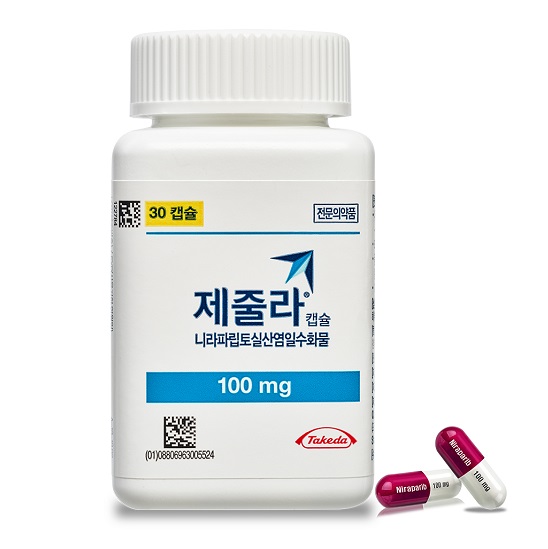The government said it would grant insurance benefit to Takeda's ovarian cancer treatment Zejula (ingredient: niraparib) from next month.
Zejula is a therapeutic agent used for monotherapy in adults with recurrent, platinum-sensitive, high-grade ovarian cancer, including fallopian or primary peritoneal cancer, who responded partially or fully to second-line or higher platinum-based therapy.
This drug is the first poly ADP-ribose polymerase (PARP) inhibitor to be used with or without a breast cancer gene (BRCA) mutation.

Eligible patients for reimbursement are those with platinum-sensitive recurrent germline BRCA-mutated highly serous ovarian cancer, including fallopian or primary peritoneal cancer, responding to second-line or higher platinum-based therapy and at least 18 years of age. Patients have to use the drug within eight weeks after the completion of the platinum-based treatment to receive the reimbursement.
The ministry approved the reimbursement of the drug after the company proved that the drug shows a significant median progression-free survival (PFS) improvement in major clinical studies with or without BRCA mutation compared to placebo.
In the ovarian cancer patients with BRCA mutations, the Zejula group had a median PFS of 21.0 months, which is about four times higher than the placebo group (5.5 months).
Also, the median PFS of the Zejula-administered group was 9.3 months in the patients with no BRCA mutation, which was clinically significant compared to the placebo-treated group (3.9 months).
"The company has made efforts to apply insurance benefits to Zejula as soon as possible after Zejula's approval from the Ministry of Food and Drug Safety in March," Takeda Korea CEO Moon Hee-seok said. "Takeda will continue its efforts to supply innovative medicines and improve the treatment environment for patients with ovarian cancer based on patient-centered attention."

